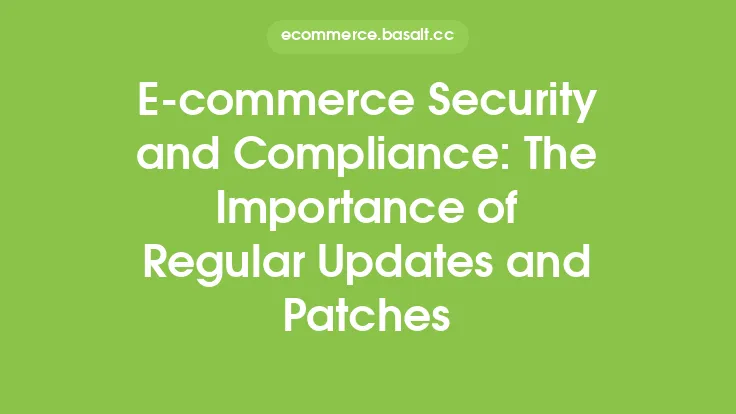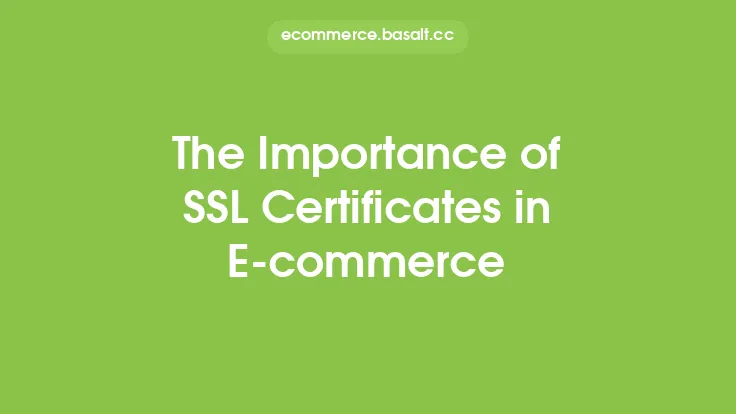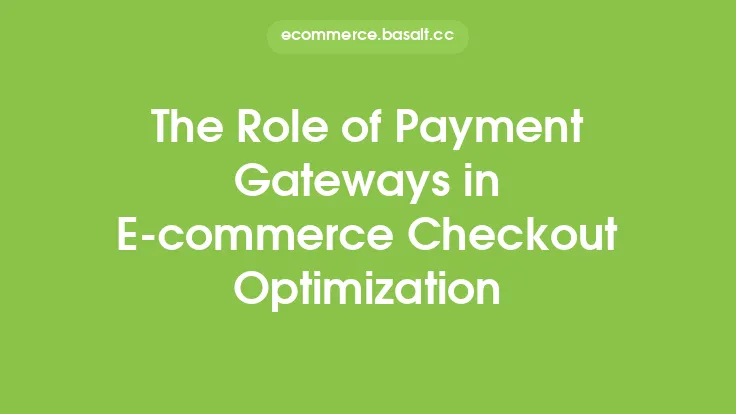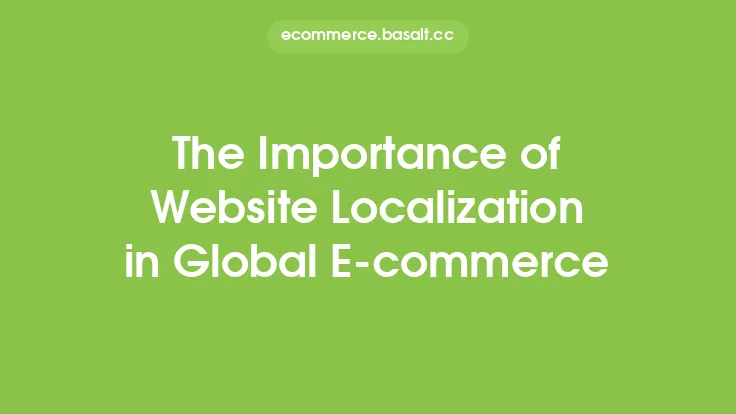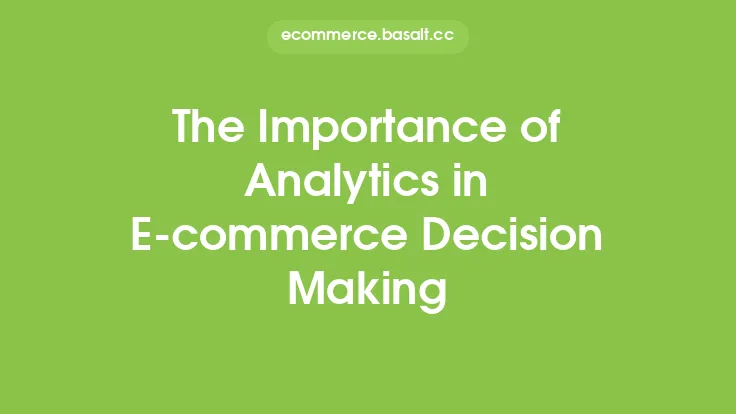Compliance is a critical aspect of e-commerce, as it ensures that online businesses operate within the bounds of laws, regulations, and industry standards. In the e-commerce industry, compliance is not just a moral obligation, but also a legal requirement that can have significant consequences if not met. Non-compliance can result in fines, penalties, and damage to a company's reputation, which can ultimately lead to a loss of customer trust and revenue.
Introduction to E-commerce Compliance
E-commerce compliance refers to the process of ensuring that an online business adheres to all relevant laws, regulations, and industry standards. This includes compliance with payment card industry (PCI) standards, data protection regulations, tax laws, and consumer protection laws. Compliance is an ongoing process that requires continuous monitoring and updating to ensure that an e-commerce business remains compliant with changing regulations and standards.
Key Regulations and Standards in E-commerce
There are several key regulations and standards that e-commerce businesses must comply with, including:
- Payment Card Industry Data Security Standard (PCI DSS): This standard requires e-commerce businesses to implement robust security measures to protect customer payment card data.
- General Data Protection Regulation (GDPR): This regulation requires e-commerce businesses to protect the personal data of EU citizens and provide them with certain rights, such as the right to access and delete their data.
- Consumer Protection Laws: These laws require e-commerce businesses to provide clear and accurate information about their products and services, and to protect consumers from unfair or deceptive practices.
- Tax Laws: E-commerce businesses must comply with tax laws, including laws related to sales tax, value-added tax (VAT), and income tax.
Benefits of Compliance in E-commerce
Compliance is essential for e-commerce businesses, as it provides several benefits, including:
- Protection of customer data: Compliance with regulations such as PCI DSS and GDPR helps to protect customer data and prevent data breaches.
- Reduced risk of fines and penalties: Compliance with regulations and standards reduces the risk of fines and penalties, which can be significant.
- Improved reputation: Compliance demonstrates a commitment to ethical business practices and can improve a company's reputation and build customer trust.
- Increased customer confidence: Compliance with regulations and standards can increase customer confidence in an e-commerce business, which can lead to increased sales and revenue.
Best Practices for Achieving Compliance in E-commerce
To achieve compliance in e-commerce, businesses should follow several best practices, including:
- Conducting regular security audits and risk assessments to identify vulnerabilities and ensure compliance with regulations and standards.
- Implementing robust security measures, such as encryption and access controls, to protect customer data.
- Providing clear and accurate information about products and services, and ensuring that marketing and advertising practices are fair and transparent.
- Ensuring that all employees and third-party vendors are aware of and comply with relevant regulations and standards.
- Continuously monitoring and updating compliance policies and procedures to ensure that they remain effective and compliant with changing regulations and standards.
Challenges of Compliance in E-commerce
Compliance in e-commerce can be challenging, particularly for small and medium-sized businesses that may not have the resources or expertise to ensure compliance. Some of the challenges of compliance in e-commerce include:
- Keeping up with changing regulations and standards: Compliance regulations and standards are constantly evolving, and e-commerce businesses must stay up-to-date with these changes to ensure compliance.
- Ensuring compliance with multiple regulations: E-commerce businesses must comply with multiple regulations and standards, which can be complex and time-consuming.
- Managing third-party risk: E-commerce businesses often rely on third-party vendors and service providers, which can create compliance risks if these vendors are not compliant with relevant regulations and standards.
Tools and Resources for Compliance in E-commerce
There are several tools and resources available to help e-commerce businesses achieve compliance, including:
- Compliance software and platforms: These tools can help e-commerce businesses to manage compliance policies and procedures, and to monitor and report on compliance.
- Consulting services: Compliance consultants can provide expert advice and guidance on compliance regulations and standards.
- Industry associations and trade organizations: These organizations can provide guidance and resources on compliance, as well as advocacy and support for e-commerce businesses.
- Regulatory websites and resources: Regulatory websites and resources, such as the PCI Security Standards Council and the European Commission's website on GDPR, can provide information and guidance on compliance regulations and standards.
Conclusion
Compliance is a critical aspect of e-commerce, and e-commerce businesses must prioritize compliance to ensure that they operate within the bounds of laws, regulations, and industry standards. By understanding the key regulations and standards, benefits, and best practices for compliance, e-commerce businesses can reduce the risk of non-compliance and protect their customers, reputation, and revenue. While compliance can be challenging, there are several tools and resources available to help e-commerce businesses achieve compliance and stay up-to-date with changing regulations and standards.
